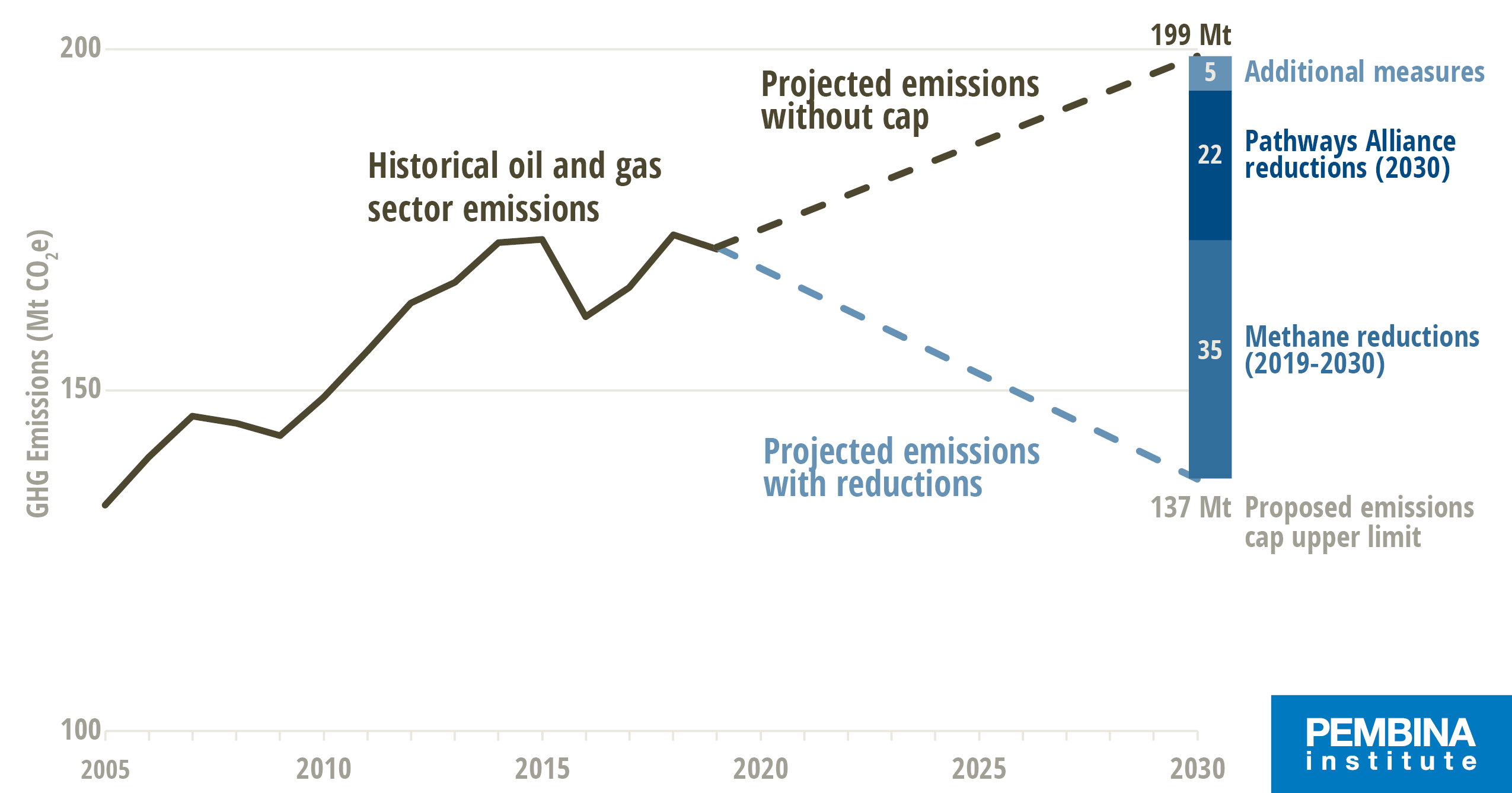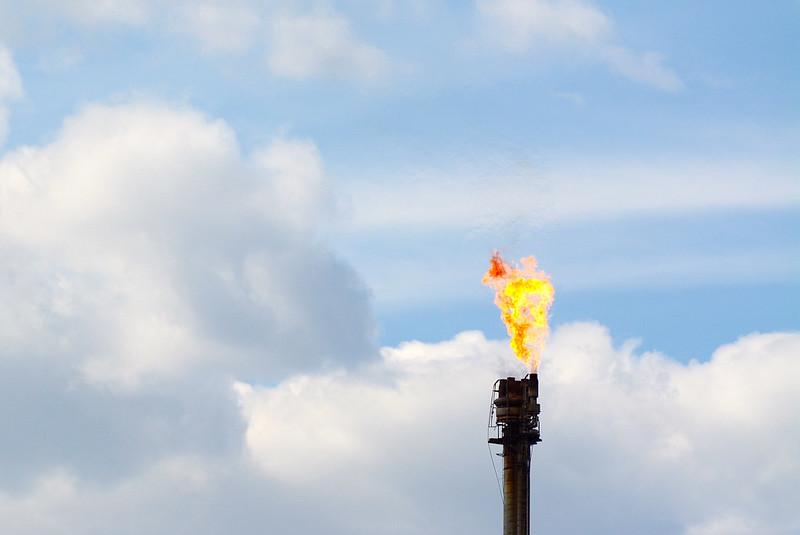CALGARY, AB—The Canadian Association of Petroleum Producers (CAPP) today released a report, Economic Impact Assessment of Canadian Conventional Oil and Gas, outlining hypothetical scenarios for conventional oil and gas production in Canada in 2030 and beyond, including in the case where the federal government’s proposed cap on oil and gas emissions is implemented.
MC Bouchard, director of oil and gas at the Pembina Institute, said:
“Our research shows that the proposed 2030 emissions cap for the oil and gas sector is feasible, without impacting levels of production. Our analysis has also outlined the business case for reducing emissions, so that Canadian oil and gas exports can remain competitive in a world that is going to be based on low-carbon energy resources. But to achieve this, companies must take urgent steps to move forward with their emissions reduction projects. Oil and gas production now accounts for almost a third of Canada’s overall emissions, again underscoring the need for further regulation of emissions from this sector.
“Today’s report is another example of economic modeling that assumes the industry takes very little meaningful action in its current operations to reduce emissions and therefore has no choice but to limit production, which is misleading for Canadians.”
Background
There are three key aspects of this report the Pembina Institute wishes to highlight:
- It is unclear to what extent this report takes into consideration the likely global decline in demand for oil and gas that is widely anticipated over the next two decades. For example, a range of scenarios – from the oil industry and from international non-governmental organisations – now show that oil demand peaks by around 2030, and enters into long-term decline thereafter. CAPP must be clearer about what it projects global demand to be in 2030 and beyond before it can make assertions about how a proposed emissions cap would impact production levels in the sector.
- CAPP’s report includes a key statement, that “every dollar spent on decarbonization efforts is a dollar lost on oil & gas production effort”. This echoes sentiments also recently expressed by the oilsands sector that companies are reluctant to dedicate capital to reducing emissions. However, this disregards the fact that investing in emissions reduction projects is in fact an investment in the future competitiveness of Canadian oil and gas exports in a world interested in low-carbon energy resources.
- Notably, in its projections in today’s report, CAPP did not include the full impact of potential methane reductions from the conventional sector. This appears to be contrary to CAPP’s own submission to the federal government in February 2024, where it said the conventional industry could achieve a 75% reduction in methane emissions by 2030 (from 2012 levels). It appears that the main driver for this is CAPP’s assumption that dollars spent on decarbonization takes dollars away from potential investment in increased production. Reducing methane is cost effective and can be done with available technologies. Our analysis, based on actual data from producers in Alberta’s Peace River region, has demonstrated that methane can be meaningfully reduced with no impact to production.
As the graph below shows, Pembina Institute research demonstrates that the proposed 2030 emissions cap can be feasibly met by the oil and gas industry, almost entirely through a combination of methane reductions (which would mostly come from the conventional sector) and the Pathways Alliance’s 2030 emissions reduction plan (for the oilsands). While today’s CAPP report covers the conventional sector only, all parts of the oil and gas sector have a part to play in reducing emissions to futureproof their operations.

Contact
Alex Burton
Communications Manager, Pembina Institute
825-994-2558




